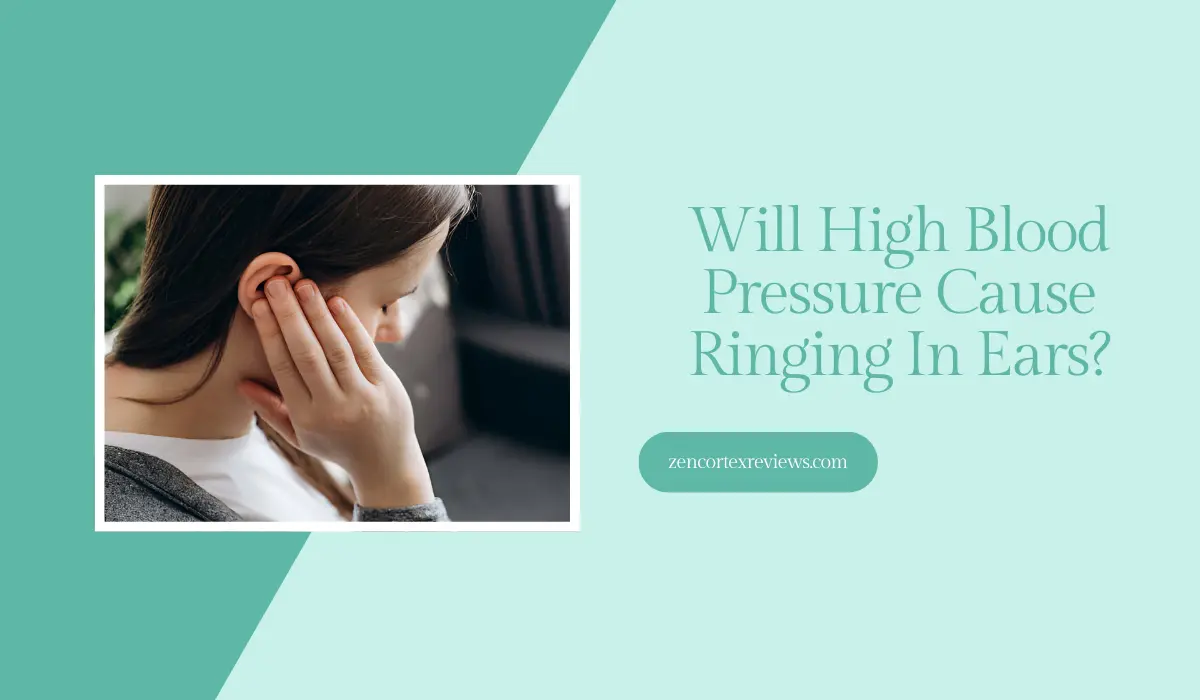Will High Blood Pressure Cause Ringing In Ears? Here Is The Truth!
Concerned about ringing in your ears and its connection to high blood pressure? Delve into the relationship between hypertension and tinnitus to understand potential correlations. Explore the latest research and expert insights to uncover whether elevated blood pressure could be a contributing factor to the ringing sensation in your ears. Arm yourself with knowledge to address both conditions effectively and maintain optimal ear and cardiovascular health.

Disclaimer: Our recommendations are sincere, driven by the products’ benefits. When you buy through our links, we may earn a commission, backing our testing and development at no extra cost to you.
If you’ve ever experienced a ringing, buzzing, hissing, whistling, or roaring sound in your ears with no external source, you’re not alone. This condition, known as tinnitus, affects an estimated 15-20% of people. While tinnitus can have various causes, one potential contributing factor that is often overlooked is high blood pressure.
High blood pressure, or hypertension, is a common condition in which the force of blood against the artery walls is consistently too high. Over time, this increased pressure can damage the delicate tissues inside the arteries, leading to various health problems, including heart disease, stroke, and kidney failure.
The Link Between High Blood Pressure And Tinnitus

While the exact mechanism is not fully understood, there is a growing body of evidence suggesting a connection between high blood pressure and tinnitus. Here’s how it might work:
- Increased Blood Flow: High blood pressure can lead to increased blood flow and turbulence within the blood vessels, including those in the ears. This increased blood flow can cause a rushing or pulsing sound that some people perceive as tinnitus.
- Narrowed Blood Vessels: Chronic high blood pressure can cause the blood vessels, including those in the ears, to narrow and harden over time. This narrowing can restrict blood flow to the inner ear, potentially leading to damage or dysfunction of the sensitive hair cells responsible for hearing and balance.
- Oxidative Stress: High blood pressure is associated with increased levels of oxidative stress, which can damage cells and tissues throughout the body, including those in the inner ear.
- Medication Side Effects: Certain medications used to treat high blood pressure, such as diuretics and certain types of beta-blockers, can sometimes cause or exacerbate tinnitus as a side effect.
It’s important to note that while high blood pressure can contribute to tinnitus, it is not the only possible cause. Tinnitus can also result from age-related hearing loss, exposure to loud noises, earwax buildup, head or neck injuries, and certain medications or underlying medical conditions.
Related: Are Ear Health Support Supplements Safe? Exploring The Facts!
Managing High Blood Pressure And Tinnitus
If you are experiencing tinnitus and have been diagnosed with high blood pressure, there are several steps you can take to manage both conditions:
- Follow Your Treatment Plan: Work closely with your healthcare provider to develop and follow a comprehensive treatment plan for managing your high blood pressure. This may include lifestyle changes, such as a healthy diet, regular exercise, and stress management, as well as medication if necessary.
- Protect Your Hearing: Avoid exposure to loud noises, which can further damage your hearing and potentially exacerbate tinnitus. Use hearing protection when necessary, and take breaks from loud environments.
- Manage Stress: Stress can contribute to both high blood pressure and tinnitus. Practice stress-reducing techniques, such as meditation, yoga, or deep breathing exercises.
- Consider Sound Therapy: Sound therapy, such as masking devices or tinnitus retraining therapy, can help minimize the perception of tinnitus and make it more manageable.
- Seek Professional Help: If your tinnitus is severe or persistent, seek the advice of an audiologist or ear, nose, and throat (ENT) specialist. They can help identify the underlying cause and recommend appropriate treatment options.
Check More: Does Ear Wax Removal Improve Hearing? Find Out Now!
End Result
While the connection between high blood pressure and tinnitus is not fully understood, it is clear that managing your blood pressure can potentially help alleviate or prevent tinnitus. By taking a proactive approach to your overall health, including controlling your blood pressure, you can improve your quality of life and potentially reduce the impact of tinnitus on your daily activities.
Lindsay Martinez
Lindsay Martinez, Au.D., is a licensed audiologist with over 10 years of experience in the field of hearing healthcare. She earned her Doctor of Audiology degree from the University of California, Los Angeles, and currently practices at Martinez Hearing Clinic, a leading audiology practice in the San Francisco Bay Area. As an expert in diagnosing and treating a wide range of hearing disorders, Dr. Martinez specializes in fitting advanced hearing aids and assistive listening devices. She is a fellow of the American Academy of Audiology and has published numerous peer-reviewed articles on topics such as noise-induced hearing loss and the latest innovations in hearing technology. Passionate about patient education, Dr. Martinez is committed to helping her patients improve their hearing and overall quality of life.
